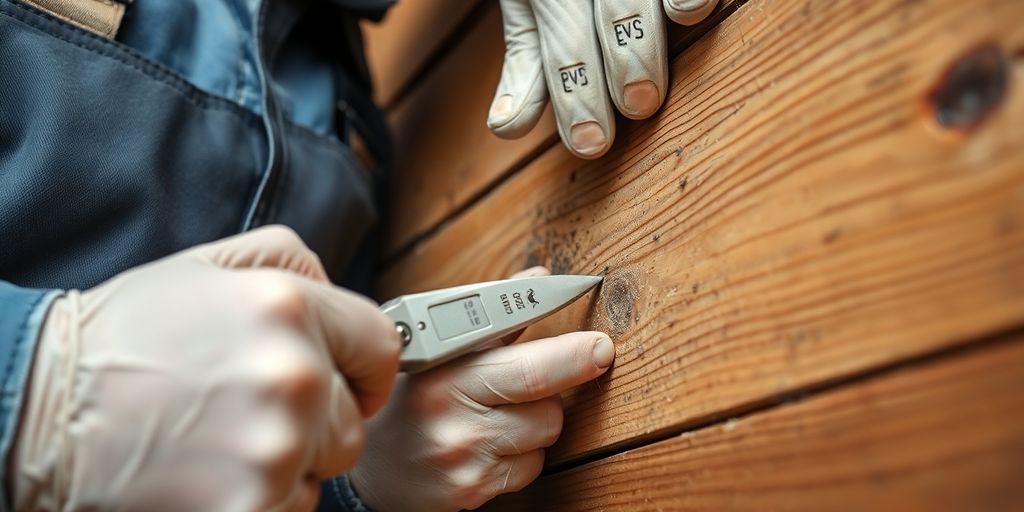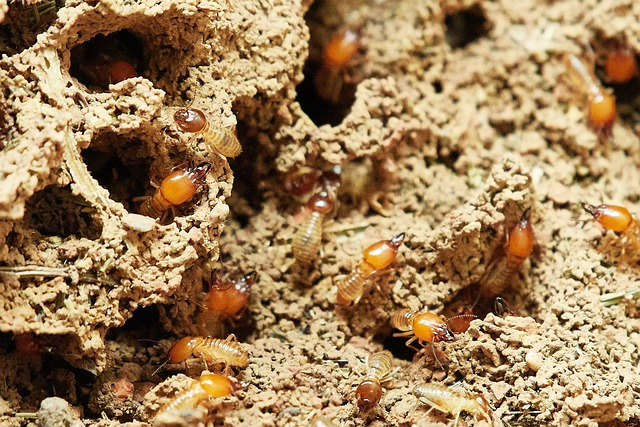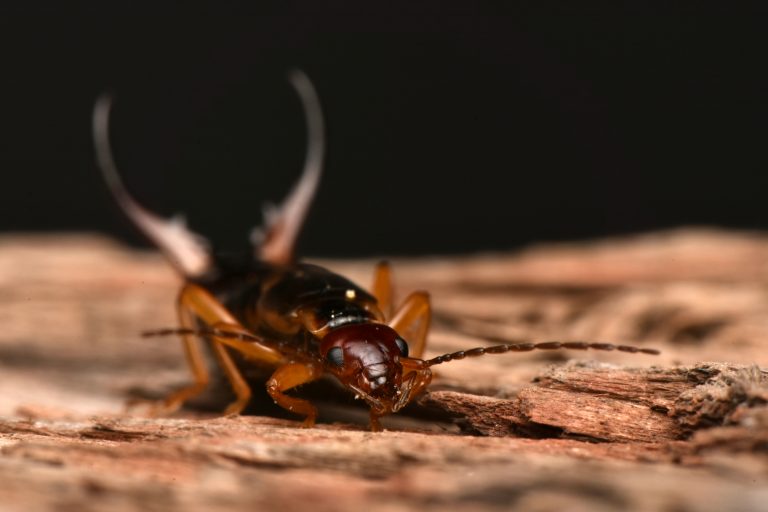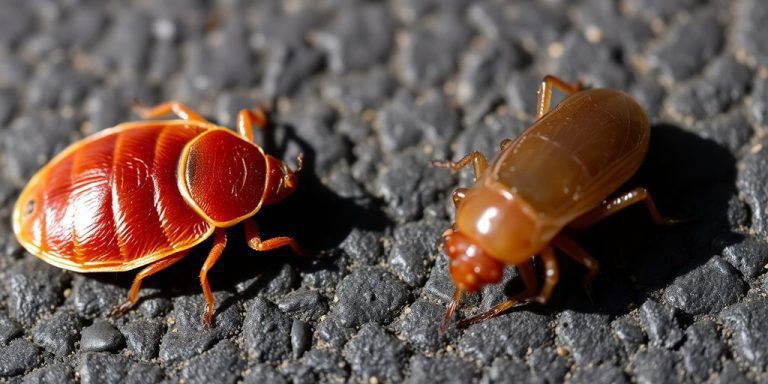Choosing the right termite company is crucial for keeping your home safe from these destructive pests. Termites can cause significant damage if not dealt with quickly, so it’s important to know what to look for when selecting a pest control service. In this article, we will explore key aspects to consider when choosing a termite company that fits your needs.
Key Takeaways
- Look for signs of termite damage in your home to catch problems early.
- Check if the termite company has the right licenses and credentials.
- Read customer reviews to learn about other people’s experiences with the company.
- Ask about different treatment options, including chemical and non-chemical methods.
- Prepare your home properly before treatment to ensure the best results.
Understanding Termite Infestations

Termites can cause serious damage to your home if not dealt with quickly. Recognizing the signs of an infestation is crucial to preventing further harm. Here are some common signs to look out for:
- Hollow-sounding wood
- Mud tubes on walls or foundations
- Discarded wings near windows or doors
Signs of Termite Damage
When termites invade, they can weaken the structure of your home. Here are some signs that you might have a termite problem:
- Hollow wood: If you tap on wood and it sounds hollow, termites may be inside.
- Mud tubes: These are small tunnels made of mud that termites use to travel.
- Swarmers: Seeing flying insects around your home can indicate a nearby colony.
Common Types of Termites
There are several types of termites, but the most common ones include:
- Subterranean termites: These live underground and are the most destructive.
- Drywood termites: They live in dry wood and do not need contact with the soil.
- Dampwood termites: They prefer wood that is damp and decaying.
Why Termites Are a Threat
Termites are a major threat because they can cause extensive damage to your home. They feed on wood, which can lead to:
- Structural damage
- High repair costs
- Decreased property value
It’s important to act quickly if you suspect a termite infestation. Early detection can save you time and money in repairs.
By understanding these aspects of termite infestations, you can take the necessary steps to protect your home from these pests. Remember, flatline pest control offers professional services to help you manage termite issues effectively.
Evaluating Termite Companies

When it comes to choosing a termite company, there are several important factors to consider. You want to ensure that you are hiring a reliable and effective service. Here are some key points to help you evaluate your options:
Checking Credentials and Licenses
- Verify that the company is licensed to operate in your state.
- Look for certifications from recognized pest control organizations.
- Ensure they have insurance to protect you and your property.
Reading Customer Reviews
- Check online reviews to see what past customers have to say.
- Look for patterns in feedback, both positive and negative.
- Ask friends or family for recommendations based on their experiences.
Comparing Service Packages
- Request quotes from multiple companies to compare prices.
- Look at what each package includes, such as inspections and follow-up treatments.
- Consider the length of the warranty offered with each service.
Choosing the right termite company can make a big difference in protecting your home from damage. Make sure to do your research and ask the right questions before making a decision.
Questions to Ask a Termite Company
When dealing with a termite problem, it’s crucial to ask the right questions to ensure you choose the best company for your needs. Here are some important questions to consider:
What Treatment Methods Do You Use?
Understanding the treatment methods is essential. Different companies may use various techniques, including:
- Chemical treatments
- Bait systems
- Fumigation
Make sure to ask about the effectiveness and safety of each method.
How Long Have You Been in Business?
Experience matters in pest control. A company with a long history is often more reliable. Ask them:
- How many years have they been in operation?
- What types of termite issues have they handled?
- Can they provide references from past customers?
Do You Offer a Warranty?
A warranty can give you peace of mind. Inquire about the warranty terms:
- What does the warranty cover?
- How long is it valid?
- Are there any conditions that could void it?
Remember, asking these questions can help you make an informed decision and ensure that you are getting the best service possible.
By being prepared and asking the right questions, you can find a termite company that meets your needs and protects your home from future infestations. Don’t hesitate to seek out the best options available to you!
Understanding Treatment Options

When it comes to dealing with termites, understanding your treatment options is crucial. Here are the main methods available:
Chemical Treatments Explained
Chemical treatments are often the most common way to eliminate termites. They involve using specially formulated pesticides that can kill termites on contact or through ingestion. These treatments can be very effective and are usually applied in the following ways:
- Soil treatment: Chemicals are applied to the soil around your home to create a barrier.
- Wood treatment: Pesticides are injected into wood to protect it from termites.
- Bait systems: Bait stations are placed around your property to attract and poison termites.
Non-Chemical Alternatives
If you prefer to avoid chemicals, there are non-chemical options available. These methods can be effective but may take longer to show results. Some popular non-chemical treatments include:
- Heat treatment: Raising the temperature of the infested area to kill termites.
- Cold treatment: Using extreme cold to eliminate termites.
- Boric acid: A natural insecticide that can be applied to wood and other surfaces.
How to Choose the Right Treatment
Choosing the right treatment depends on several factors:
- The severity of the infestation.
- Your budget for pest control.
- Your preference for chemical or non-chemical methods.
It’s important to consult with a professional to determine the best approach for your specific situation.
By understanding these treatment options, you can make an informed decision that best suits your needs and protects your home from termite damage. Remember, effective pest control is key to maintaining a safe and healthy living environment.
Preparing Your Home for Treatment
When it comes to termite treatment, getting your home ready is crucial. Taking the right steps can make the process smoother and more effective. Here are some important things to do:
Clearing the Area
- Move furniture and other items away from the walls.
- Remove any decorations or knick-knacks that might be in the way.
- Ensure that the area around the foundation is clear of debris.
Protecting Your Belongings
- Store valuable items in a safe place.
- Cover furniture with plastic sheets to protect it from dust and chemicals.
- If you have pets, make sure they are in a safe area away from the treatment zone.
What to Expect During Treatment
- The treatment may take several hours, so plan accordingly.
- You might need to leave your home for a short time, especially if chemicals are used.
- After treatment, the area will need to be monitored for any signs of termites.
Preparing your home properly can help ensure that the treatment is successful and that your home remains safe from termites.
By following these steps, you can help the pest control team do their job effectively and keep your home protected from future infestations. Remember, being proactive is key to effective pest management!
Post-Treatment Considerations

After your home has been treated for termites, it’s important to keep an eye on things to ensure the problem doesn’t come back. Here are some key points to consider:
Monitoring for Recurrence
- Check for signs of new damage regularly.
- Look for mud tubes or discarded wings around your home.
- Keep an eye on wooden structures, especially in damp areas.
Maintenance Tips
- Keep your home dry by fixing leaks and ensuring proper drainage.
- Store firewood away from your home to prevent attracting termites.
- Regularly inspect your home for any signs of moisture or wood damage.
When to Call the Professionals Again
- If you notice any new signs of termite activity.
- If your home has been exposed to water damage.
- If you have concerns about the effectiveness of the treatment.
Remember, early detection is key to preventing a major infestation. Regular checks can save you from costly repairs later on.
By following these steps, you can help protect your home from future termite issues. Always stay vigilant and don’t hesitate to reach out to professionals if you suspect a problem. Being proactive is the best way to keep your home safe from these pests!
Conclusion
Choosing the right termite control company is really important for keeping your home safe. Take your time to research and ask questions. Look for companies that have good reviews and are honest about their services. Remember, the best choice is one that fits your needs and budget. By making an informed decision, you can protect your home from termites and enjoy peace of mind.
Frequently Asked Questions
What are the signs that I have termites in my home?
You might notice things like mud tubes, damaged wood, or even seeing termites themselves. If you see any of these signs, it’s time to check for termites.
How do I find a good termite control company?
Look for companies that have good reviews and the right licenses. You can also ask friends or family for recommendations.
What methods do termite companies use to get rid of termites?
Most companies use chemical treatments, but some also offer natural options. It’s good to ask them what methods they use.
How long does it take to treat a termite problem?
The time it takes can vary. Some treatments can be done in a few hours, while others might take a few days.
Will I need to leave my home during the treatment?
It depends on the treatment used. Some methods may require you to leave for a short time, while others do not.
How can I prevent termites from coming back?
You can keep your home dry, fix leaks, and remove wood that’s in contact with the ground. Regular inspections can also help.




